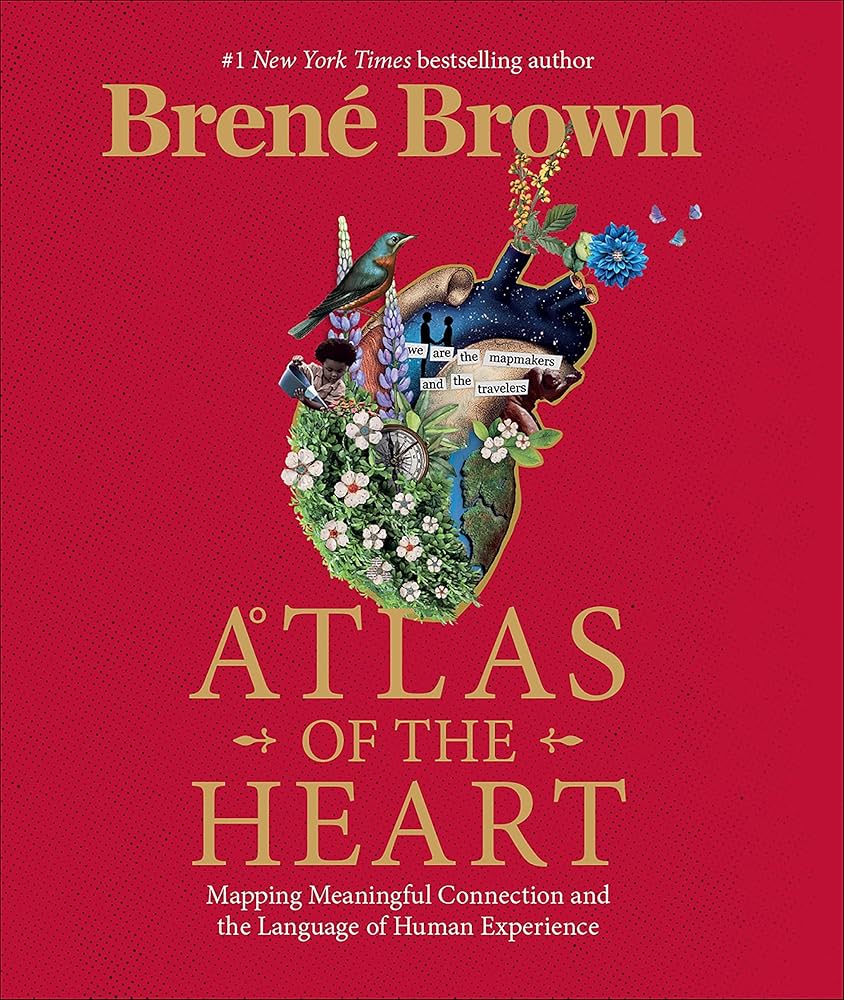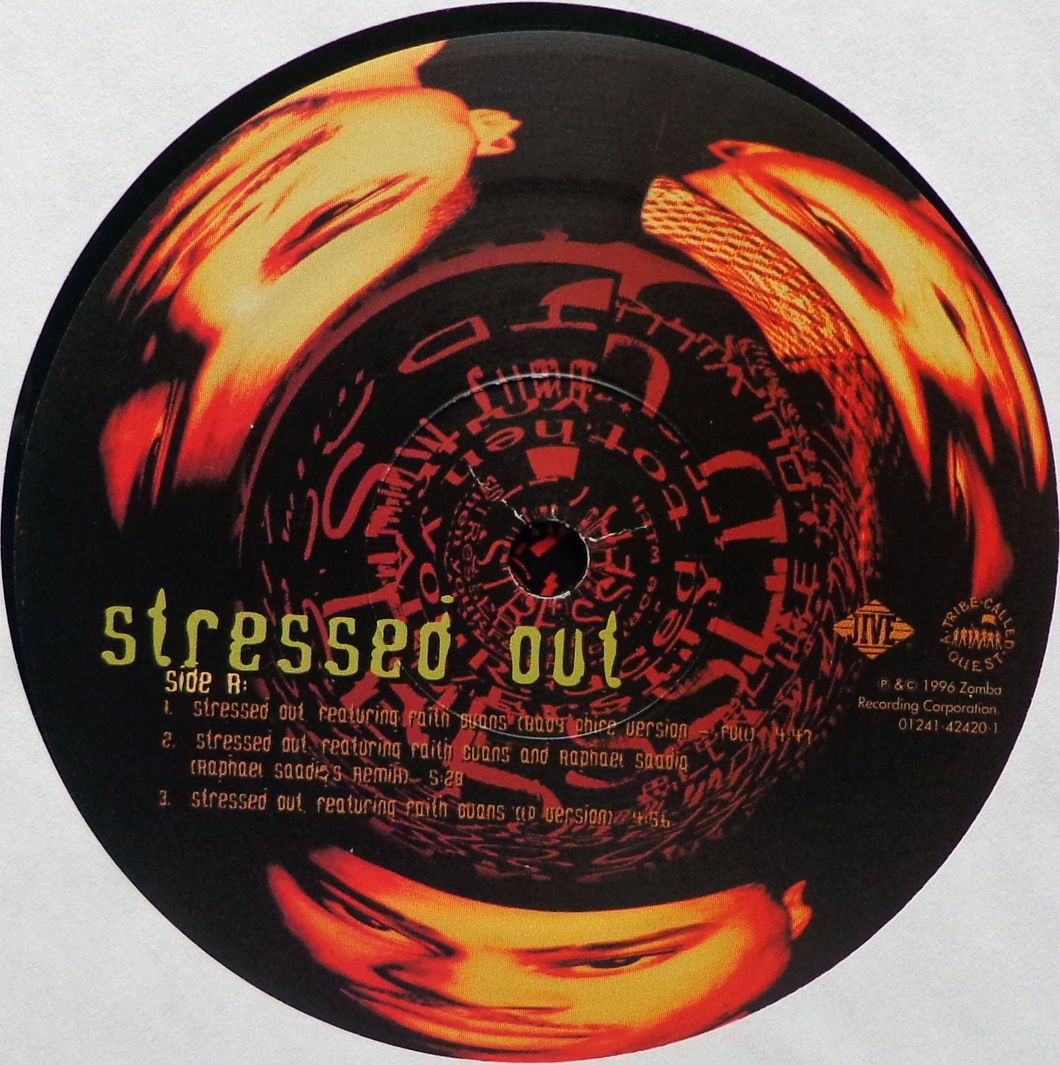
Every now and then you come across a book that changes everything.
Atlas of the Heart has recently been that book for me.
If you have done any inner self work you are likely familiar with Brene Brown and her work.
This book of hers, which came out in 2021, is the crown jewel of a culmination of her life's work.
It is a deep dive into 86 different emotions that she and others have researched.
I have wanted to read it for a few years and actually purchased a copy of it in January of this year (2024) but was afraid to open it up as emotions can be scary. As I started to read it, I again felt fear because emotions can be scary, even just to read about! Now that I've finished reading it and spent time feeling, thinking and digesting her material I can say this is one of the most important books I've ever read. It is worth sitting with the discomfort and learning about emotions as it can create profoundly positive changes in our lives by allowing us to understand our experience of life through emotions.
Emotions drive us as humans. They determine so much of our experience and are behind our conscious mind's thoughts and actions, often from beliefs and ideas deep in our subconscious. I never learned the language of emotions as a young person and I think this is a common experience for most.
Here is one of the most important quotes from her introduction.
"Research shows that the process of labeling emotional experiences is related to greater emotion regulation and psychosocial well-being".
Being able to have a vocabulary around emotions, to understand them and be able to label them when they happen, write them down, share them with others and fully process them has become one of the most important skills I have been learning and am interested in sharing with the world.
Writing poetry and music is something I love doing and often it is because I feel something deeply inside myself. Having the language and understanding that go beyond simply just mad, glad, sad and bad has helped me in my artistic development but also in my human development.
Here are a few of the most memorable takeaways I've found from this book.
Places We Go When Things Are Uncertain or Too Much

Stress and Overwhelm
Learning the difference between being stressed and overwhelmed was incredibly helpful for me.
Like everyone else I have felt stress in work, relationships and life generally.
Brene describes stressed as being "in the weeds" where, for example, you might need a fellow waiter to help you with your table at a restaurant. Whereas overwhelmed as "being blown" and you may need to step into the freezer or outside and wait things out.
We feel stressed when we evaluate environmental demand as beyond our ability to cope successfully. This includes elements of unpredictability, uncontrollability, and feeling overloaded.
Overwhelmed means an extreme level of stress, an emotional and/or cognitive intensity to the point of feeling unable to function.
Understanding when these are happening can allow us to either reach out for help when we are stressed or to step away from situations when we are overwhelmed.
Places We Go When We Compare

Envy and Jealousy
It turns out most of us use the words envy and jealousy incorrectly.
Envy occurs when we want something that another person has.
Jealousy is when we fear losing a relationship or a valued part of a relationship that we already have.
Brene quotes the great poet Maya Angelou, "jealousy in romance is like salt in food. A little can enhance the savor, but too much can spoil the pleasure and, under certain circumstances, can be life threatening."
Envy typically involves two people and occurs when one lacks something enjoyed by another. The target of envy may be a person or a group of persons, but the focus of envy is that one lacks something compared with a specific target, whether it be a target individual or target group.
Jealousy typically involves three people and occurs when one fears losing something to another person Envy and jealousy result from different situations, generate distinct appraisals, and produce distinctive emotional experiences.
Resentment
A big surprise from reading about resentment was to learn that it doesn't come from the anger family of emotions but rather from envy. Where we think things should be a different or another way; often triggered from something in the past. The word resentment comes from a "re-feeling" of a situation.
Resentment is the feeling of frustration, judgement, anger, "better than," and/or hidden envy related to perceived unfairness or injustice.
It's an emotion that we often experience when we fail to set boundaries or ask for what we need, or when expectations let us down because they were based on things we can't control, like what other people think, what they feel, or how they're going to react.
Brene suggests reframing questions rather as; "now when I start to feel resentful, instead of thinking. What is that person doing wrong? or What should they be doing? I think, What do I need but am afraid to ask for?"
Places We Go When Things Don't Go As Planned

I have struggled with anger in my life, being mad. Now I recognize so many other emotions that are underneath anger and many of them are listed here below, when things don't go as planned.
Disappointment
Disapppointment always starts with expectations; expectations that are unexamined and unexpressed (aka stealth expectations) and examined and expressed expectations.
Research shows that disappointment is one of the most frequently experienced emotions, and it tends to be experienced as a high level of intensity".
When we develop expectations, we paint a picture in our head of how things are going to be and how they're going to look.
Expectations come down to fear, a need for certainty, or a need for rest and play. It's just so hard to ask sometimes. Here are some good questions to ask around expectations.
- What expectations do you have going into this?
- What do you want to happen? Why?
- What will that mean to you?
- Do you have a movie in your head?
- Are you setting goals and expectations that are completely outside of your control?
Around examined and expressed expectations; when someone shares their hopes and dreams with us, we are witnessing deep courage and vulnerability. Celebrating their success is easy, but when disappointment happens, it's an incredible opportunity for meaningful connection.
One was to minimize disappointment is to lower our expectations. I've found this to be true and helpful with anything we are trying to learn that is difficult and challenging, lowering the bar can help us get started and make more progress by starting smaller and going slower.
Disappointment: It didn't work out how I wanted, and I believe the outcome was outside of my control.
Regretful
Research shows that in the short term, we tend to regret bad outcomes where we took action. However, when we reflect back over the long term, we more often regret the actions we didn't take.
90% of regrets come from six categories: education, career, romance, parenting, self-improvement, and leisure.
Regret emerged as a function of empathy. And, when used constructiveyl, its a call to courage and a path toward wisdom. Brene mentioned that "regret has taught me that living outside my values is not tenable for me., this resonates heavily with me. Sometimes the most uncomfortable learning is the most powerful.
Regretful: It didn't work out how I wanted, and the outcome was caused by my decisions, actions, or failures to act.
Discouraged
Feeling discouraged and resigned is about effort rather than outcome.
Discouraged: I'm losing my confidence and enthusiasm about any future effort - I'm losing the motivation and confidence to persist.
Resigned
Resigned: I've lost my confidence and enthusiasm about any future effort - I've lost the motivation and confidence to persist.
Frustrated
Frustration sometimes overlaps with anger. The main difference is that with frustration, we don't think we can fix the situation, while with anger, we feel there is something we can do.
Frustrated: Something that feels out of my control is preventing me from achieving my desired outcomes.
These are all emotions discussed in only the first three chapters! Next week I will release a part two in my series on what I've been taking away from Brene's book on emotions.